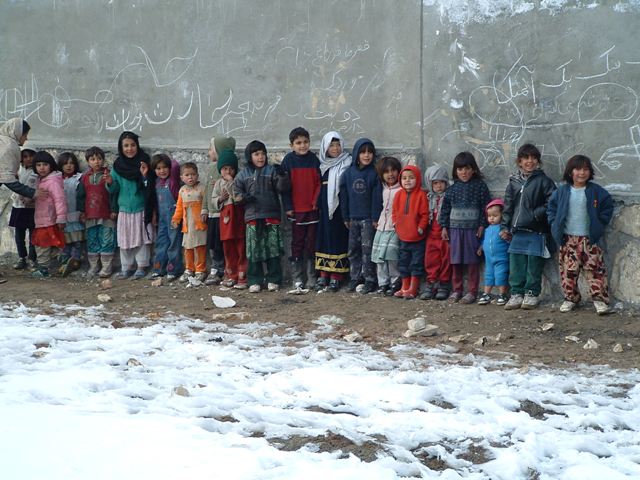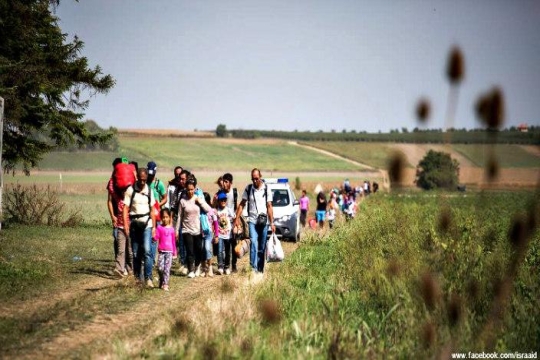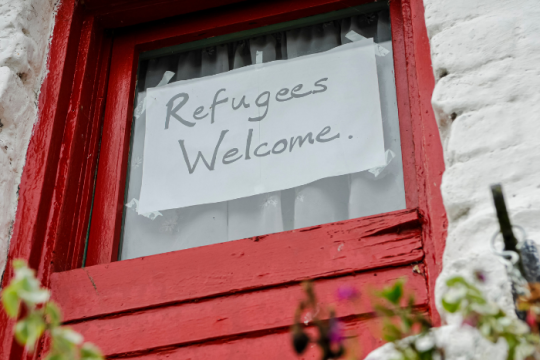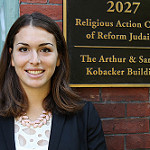
Soon, we will gather with our families and friends for our annual Passover seder, where we will retell the story of our liberation from slavery. As we read about our ancestors’ enslavement in Egypt, and how they fled so hurriedly they didn’t have time for their bread to rise, we recognize how fortunate we are today. We will comfortably recline to celebrate our freedom, eat our fill, and declare dayeinu (it would have been enough). Each of God’s blessings on their own would have been enough, but we know today that we are blessed abundantly.
Yet we will not simply rejoice in our freedom; we will also dip in salt water and eat bitter herbs to remember the bitterness of slavery. We complete this ritual each year to understand the joy and redemption of the Exodus in light of the suffering that came before, and so that we do not forget the pain of persecution and the isolation of being a stranger in Egypt and today. In a moment when 65 million people worldwide are strangers in a strange land, we cannot afford to forget our Jewish legacy of exile.
The haggadah, the book which guides us through the seder, urges each of us to personally embody the experience of fleeing Egypt. While for many of us this is an imaginative or figurative exercise, refugees fleeing violence, war or religious persecution have lived this reality. Yet in the last three months, the current administration has twice barred or restricted entry to this country for immigrants and visitors from Syria, Somalia, Sudan, Libya, Yemen and Iran, and for refugees as well. President Trump’s executive orders treat those fleeing horrific acts of terror as if they are terrorists, rather than as parents and children seeking safety and stability. While both of these orders have been stayed by court challenges, we nonetheless must resoundingly declare that the United States will remain a land of welcome. We are compelled to advocate on behalf of the stranger because we were strangers too. Take action and urge the President to rescind his unjust refugee ban.
There are many ways to highlight our commitment to welcoming refugees during the seder. This year, Temple Beth-El in Richmond, Virginia will welcome over a dozen refugees to join their congregation’s Passover meal. The RAC along with HIAS, the Jewish refugee resettlement agency, has produced a haggadah supplement that incorporates readings and rituals to recognize the challenges facing today’s refugees. Even adding one extra prayer or reading for refugees can help draw the connection between our redemption story and the hope that today’s refugees carry in their hearts. On a holiday rich with symbolism, we can also make room for a symbol for refugees on our seder plates and carry that commitment beyond the meal.
To find the materials mentioned in this blog and other social justice resources for Passover, visit our Passover resource page. To learn more about the global refugee crisis, visit the RAC’s refugee issue page.
Related Posts

World Refugee Day 2022

Welcoming the Stranger: How Reform Congregations are Taking Action for Refugees


